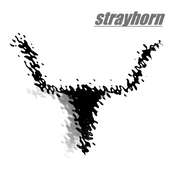When we were kids and first listened to music on the radio and TV in the early sixties a distinctive sound could be heard colouring certain popular songs. We had no idea where it came from, or what it was, we only felt it touching us. Later we discovered that the sound had deep roots, in time and space.
Growing up we got the itch to try to make that sound ourselves, to play and sing our blues, to cry and shout, weep and howl. Like the majority of blues players always have been, we are part time musicians, working at other jobs over the years to make a living, dragging our tails around in obscure bands when the music we loved was far from the spotlight. We stumbled into each other a few years back, and finding a connection, have persisted in attempting to make something out of it together.
The countless black American musicians who created and nurtured the genre, made their music out of their own sorrows and joys, and the many injustices inflicted upon them and their people. In our circumstances and times we feel the need to try to expand the territory occupied by the music, while remaining within its general compass. Most of us in the west are no longer working on the killing floor but there is still plenty to sing the blues about.
Gasoline
Based on the central riff and opening lines of I Asked For Water by Howling Wolf, we imagine the words coming from a conscript soldier in a far off land whose officers have sent gasoline instead of water, leaving him stranded. At a wider level it alludes to the gulf between real human needs and what the globalised corporate machine seeks to provide us with.
My Baby Don't Cry No More
Bayou blues based on two themes that lay sleeping for over twenty years.
Shilling
Slow jazz-blues in G.
Can't Beat The Kid
Cover of an Eddie Hinton composition that we first heard on John Hammond's 1975 album of the same name.
Gillett Street Blues
An observation of street life in a poor district of London that strays into a commentary on the misadventures and hypocrisy of the Bush and Blair administrations in the Middle East.
"The blues are fantastically paradoxical and, by all logical and historical odds, they ought not to have come into being. I'm absolutely certain that no one predicted their advent"
Richard Wright: from the foreword to Paul Oliver's Blues Fell This Morning
Paris 1959.
